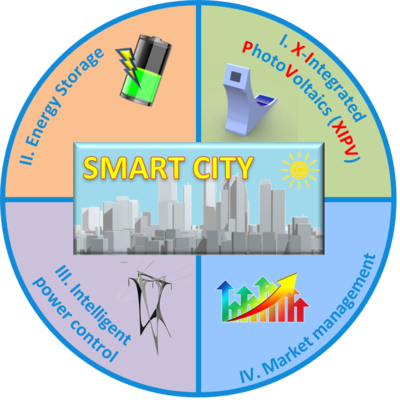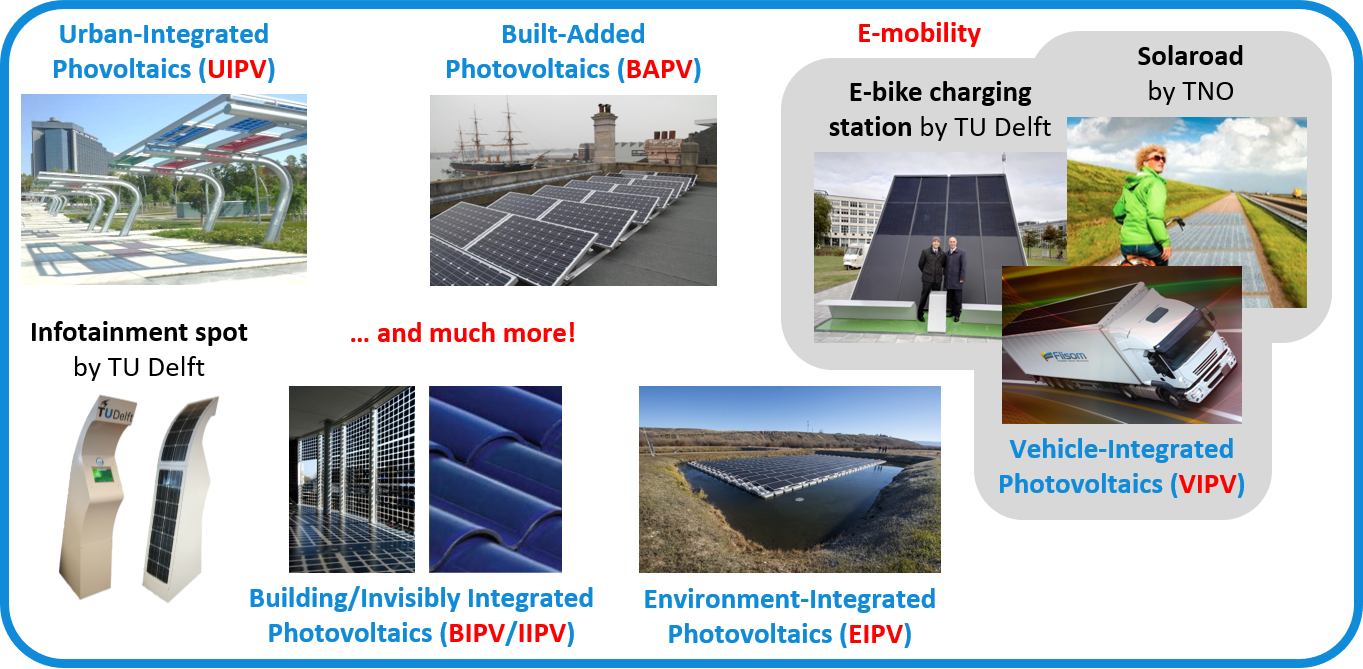Hosting group
Delft University of Technology aims to become global leader in Solar Energy education. The PVSSS completes our educational offer, which includes on-campus courses carried out with the help of our PV educational lab, and a series of online courses that cover the entire spectrum of educational levels – from the fundamentals of solar energy to professional education courses covering specific aspects such as photovoltaic modelling and processing. All this is supported by a book on Solar Energy, published through UIT Cambridge.
Vision
As the world population grows, providing energy, water, and food is among the top ten challenges facing humankind in the next 50 years. The share of electricity in the total energy consumption mix will increase in future, and this trend is particularly valid for cities and urban areas. Today, electricity networks are mostly mono-directional – with power being transported and distributed from a central power station (gas, coal, nuclear) to the end users. However, a significant transition in the energy mix from fossil fuels to renewable energy sources has recently been ongoing. Such transition strongly impacts electricity networks, which must be re-designed to allow a high penetration of electricity generated from renewable sources such as solar and wind energy. In these novel networks, often called Smart Grids, power flux flows in two directions – to and from the consumer – since the consumer can generate electricity and use it on-site or feed it to the grid. This new electricity infrastructure will be implemented in present and future urban areas, making them smart too. The main pillars of the future electricity infrastructure in cities will be (i) hybrid X-Integrated photovoltaic (XIPV) systems, (ii) energy storage, (iii) intelligent power control and (iv) market management.

The Electrical Sustainable Energy department possesses such expertise, and the Photovoltaic Materials and Devices group in particular focuses on XIPV. The notion of XIPV systems includes not only classical low environmental-impact built-added PV (BAPV) but also modern building-integrated PV (BIPV), urban-integrated PV (UIPV), and environment-integrated PV (EIPV) systems. In addition, systems incorporatad both aesthetically and functionally in the place of installation, such as invisibly-integrated PV (IIPV) and vehicle-integrated (VIPV) systems, exemplify architectural and e-mobility efforts in harnessing solar energy. Finally, novel PV-powered applications such as infotainment spots, e-bike charging stations, and solar roads can be flexibly-expandable, modular systems designed to exhibit very high yearly energy autarky (self-consumption) and/or high annual energy yield.

The Photovoltaic Materials and devices group
The PVMD group, headed by prof. dr. Olindo Isabella, has a long history of research on thin-film silicon solar cells and advanced opto-electrical modelling of solar cells. In the last ten years, the activities have been extended to the fabrication of high-efficiency crystalline silicon solar cells, smart modules, and multi-functional building elements, as well as to the integration of PV systems. In this respect, cutting-edge PV laboratories and monitoring systems are available for indoor/outdoor evaluation and study of PV systems and individual components (modules, inverters, etc.). The PVMD group aims to achieve a deeper understanding of solar cell and PV module physics using advanced characterisation and modelling. This knowledge is then used to design and fabricate advanced solar cells and custom PV modules with higher efficiencies, taking module integration into consideration.
